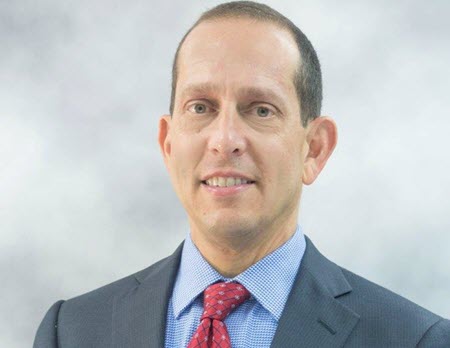WOW’s Roger Seiken: ‘It Has to Be a Win-Win’
The smarter way to stay on top of the multichannel video marketplace. Sign up below.
You are now subscribed
Your newsletter sign-up was successful

The MCN 2017 Gatekeepers: The Pendulum Swings Back|Dish’s Andrew LeCuyer: Starting the ‘Hard Conversation’|Mediacom’s Italia Commisso Weinand: ‘Do the Right Thing’ |A Veteran Gatekeeper for a New Distributor
Over the years, programming negotiations have become more marathon than sprint. In terms of that metaphor, WideOpenWest programming chief Roger Seiken is more suited for the job than most.
Seiken is an avid runner. He started seriously about nine years ago, participating in Ironman triathlons, and will run in his fourth Boston Marathon next April. He knows that patience and training pay off.
“I don’t have a background in running or biking or anything,” Seiken said. “I just picked it up; I just started off at short distances and got longer and longer. People kind of find their sweet spot of what kind of distance you like. For me I happened to like long distance, which takes more endurance as opposed to speed.”
Seiken joined WOW in March after a long stint negotiating programming deals at Verizon Communications. Prior to that he worked on the other side of the table, in both affiliate sales and legal roles at Discovery Communications, negotiating deals with several distributors, including WOW.
As a midsized operator — WOW has about 474,000 video customers — Seiken is aware that some of the programming benefits awarded larger distributors are just not available to smaller players. But perseverance and a changing viewership landscape are paying off, Seiken said, and programmers are starting to see the benefits of working cooperatively with smaller distributors.
“Networks are inherently not flexible,” Seiken said with a half-laugh, adding that any changes aren’t likely to happen overnight and will come as normal renewal cycles expire. “But that being said,” he continued, “we are starting to see some thawing out there. I’m having some discussions with big media companies that suggest that some flexibility is coming.
“I think that’s happening at least in part because of the realization that these media companies can’t force distributors to carry dozens of channels on the most widely distributed tiers,” Seiken said. “We as distributors don’t want it, and our customers don’t want it.”
Smaller distributors also have another arrow in their quiver in that broadband is increasingly becoming king. As Cable One and other midsized distributors have dropped major network groups like Viacom, and have survived the video-subscriber losses, smaller distributors have been emboldened to take a harder stance. With video margins shrinking, many have said there’s more money in selling broadband (usually at higher-speed tiers to accommodate streaming) and providing links to subscription video services from other providers.
“That’s actually something I have raised in every single negotiation,” Seiken said. “You guys [programmers] need to be supporting our business and betting on us, because we’re good for you in the long term.”
Seiken said he understands the desire to extract the most value out of a contract, but as increases and fees climb unchecked, they eventually reach a point where it becomes unfeasible to offer video service.
That, in turn, forces smaller operators to de-emphasize video in favor of broadband, which Seiken said has higher margins and less risk.
“If that happens, these partners are going to be left with just a handful of very, very large distributors — maybe one wireline and two satellite guys in every market,” Seiken said. “That’s not what they want.”
WOW has said it is de-emphasizing video in favor of broadband, but Seiken said that doesn’t mean the operator is abandoning content.
“First and foremost, we are a network operator,” Seiken said. “Some customers are going to continue to want the big bundle, others are going to assemble smaller customized offerings. In either case, we want to support them.”
WOW has two large programming contracts coming due this year and two more in 2018, so Seiken will soon have the opportunity to find out if content companies are indeed willing to bend in negotiations. He said he hopes programmers realize that in carriage negotiations, both sides should cross the finish line intact.
“We watch your content, we value your content, but it has to be on terms that are going to support our business,” Seiken said. “In the last five or 10 years, the deals have become too one-sided from the smaller guys’ perspective. If the WOWs of the world are going to stick around in the video space, it has to be a win-win for both sides.”
The smarter way to stay on top of the multichannel video marketplace. Sign up below.
